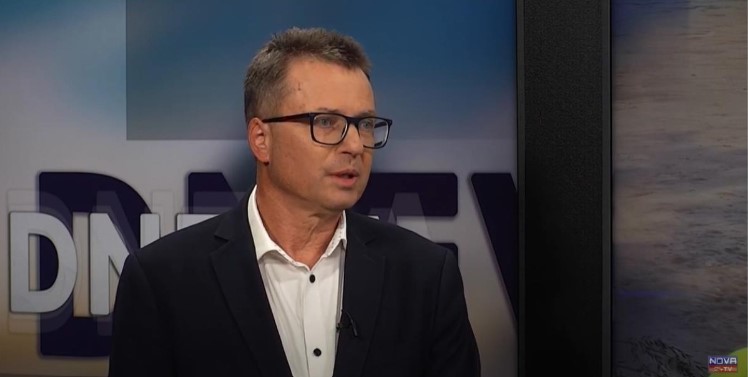MP Zvonko Černač pointed out that the rejection of the Water Act in 2021 happened because of the people who now sit in positions of power in the government and also in the parliament, who, back then, under banners with the words “Freedom,” managed to manipulate the nation into thinking that there was something bad in that Act. In reality, it removed bureaucratic obstacles, which are the main reason why the flood protection measures have been implemented too slowly. But instead, they cut funding – from 280 million euros to 120 million euros. This is the reason why the Koroška and Savinjska regions do not have flood protection. Politics was unanimous in many of the solutions after the floods, but that does not mean that the intervention law was unanimously supported. Namely, the Slovenian Democratic Party (Slovenska demokratska stranka – SDS) was opposed to the solidarity contribution, as it believes it is offensive to take money from people’s pockets, Černač stressed.
Many people have been wondering whether the SDS party has resisted the unity of politics after the flood. “We are still united in the belief that we need to help people as soon as possible. In the intervention law, a provision for a so-called compulsory solidarity tax was introduced after we had discussed it. We did not expect this, because a few days before, Prime Minister Robert Golob had said that a contribution would be introduced, if necessary, after all other resources had been exhausted and after the damage assessment was known. Golob was talking about the figures of five, seven billion euros, and the next day, he said that there was no damage assessment because 70 municipalities had not yet provided the necessary data,” said MP Zvonko Černač. That means that all these estimates are merely speculations – and on these speculations, a financial construction has been built which, according to Golob, will take one billion, three hundred million euros out of people’s pockets – “and this is what we opposed in the SDS party.” Some of the measures introduced in the new law are good, he said, but some are completely misguided. For example, a filmmaker who is unable to film for a week will receive 50 thousand euros, while a homeless family of four will receive a maximum of 12 thousand euros. The SDS party thus proposed that families who have lost their homes should receive immediate assistance of up to 250 thousand euros – however, their proposal was not accepted, adds Černač.
But unity is always in the hands of whoever holds the most power. “When the SDS party was a government party, we always invited all parliamentary parties to work with us,” Černač pointed out.
Is there really not enough money, as Robert Golob says?
“What Robert Golob is saying is not based on any facts. We do not have an estimate of the damage yet, and not all the available budgetary resources have been taken into account. Only 520 million euros were transferred in the rebalancing, the balance of around 100 million euros in the climate fund was not transferred, and the proposal to allocate part of the income tax that people do not allocate to associations to the flood relief fund was not accepted. The Minister of Public Administration will also not cancel the tender to distribute 6.3 million euros to 14 pro-government civil society organisations, which is a scandal,” said Černač.
Why is there no tax on the balance sheet of banks?
If what Golob says were true, that those who have the most should be hit first, then we wonder why there was no tax on the balance sheet of banks in this law. This tax, which is to be introduced in the next recovery law – at 0.2%, is supposed to bring in less per year than people will have to contribute out of their own pockets. It is supposed to bring in 100 million euros, but people will contribute 150 million euros out of their own pockets in the first year alone. Obviously, Golob likes to talk the talk but does not want to walk the walk, Černač believes. This is not responsible politics, he added.
Would the Water Act have changed anything?
In addition to additional funds for watercourse management, the Water Act that was rejected in 2021 also provided for substantial administrative relief for the rehabilitation procedures, which is one of the main problems that resulted in the Golob government not managing to use all the grants provided during the term of the Janez Janša government, said Černač. A month before the storm, they even gave up 160 million euros for flood protection. Under pressure from the public, they sent a correction, saying that they want to apply for additional funds of 747 million euros out of the 2 billion eight hundred million available. Here, too, there was still a margin that could be exploited with effort and a change in the law that would allow the formal procedure to be sped up.
There is no need to take the money from the citizens
There was no need to take the money from the citizens, nor was it the right moment to do so – with it, they killed solidarity, said Černač. “People would have given money to help those in need without legal coercion. This is also evidenced by the story of the firefighters in Prevalje, who wrote on Facebook that they had no equipment, and an individual came forward and donated 122 thousand euros to them without coercion. That is the way to go, and not taking money out of people’s pockets.”
A 50% mark-up on any work carried out related to flood safety has also been added to the law. This means a 50% mark-up on existing concession contracts that contractors have for this work. If this does not open the way for speculation and corruption, I do not know what else it can open, concluded Černač.
Sara Kovač


